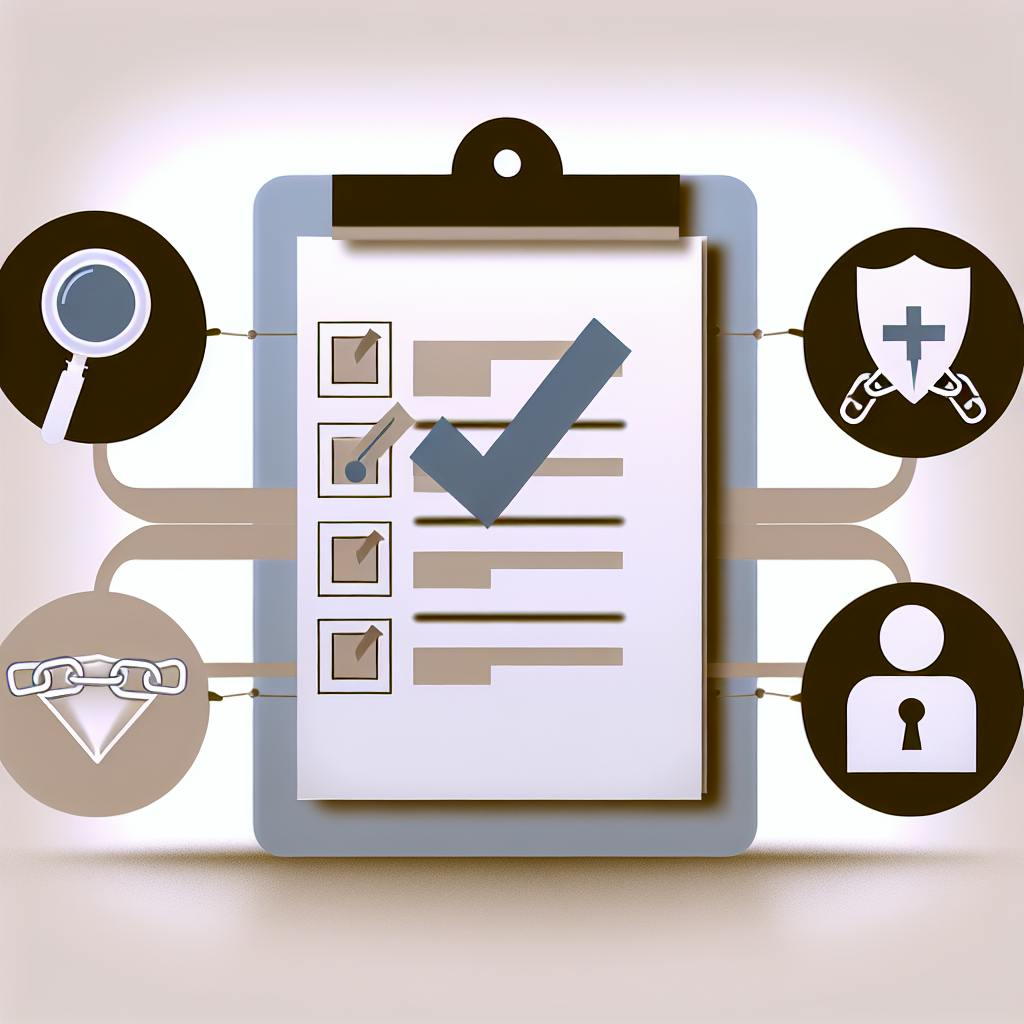Most professionals would agree that aligning employee aspirations with organizational goals is crucial, yet challenging.
Individualized career coaching provides a customized approach to foster mutual growth by evaluating development needs and crafting personalized plans.
In this article, we'll explore how individualized coaching helps achieve shared objectives, benefiting both employees and organizations.
Introduction to Individualized Career Coaching
Defining Individualized Career Coaching
Individualized career coaching provides employees with tailored guidance and support to help them achieve their professional goals and aspirations. Unlike traditional career coaching, it is customized based on each person's unique skills, interests, values and organizational fit.
Goals of Individualized Coaching for Career Growth
The key goals of individualized career coaching include:
- Helping employees discover their true career passions and interests
- Developing the right skills and competencies needed to advance
- Setting realistic and achievable professional goals
- Creating customized career development plans and learning pathways
- Improving employee engagement, productivity and work satisfaction
Benefits for Employees: Aligning Aspirations with Career Paths
Employees can benefit in the following ways from individualized coaching:
- Gain clarity on their talents, strengths and professional interests
- Build confidence to develop skills that lead to career advancement
- Improve work-life balance and find greater meaning and fulfillment
- Increase job satisfaction by aligning work with personal values
Benefits for Organizations: Achieving Mutual Growth Objectives
Organizations also stand to gain from individualized career coaching:
- Retain top talent by supporting their professional growth
- Boost productivity and innovation with an engaged, satisfied workforce
- Develop future leaders aligned with company values and objectives
- Foster an employee-centric culture focused on mutual success
In summary, individualized career coaching aims to align employee aspirations with organizational goals to drive mutual growth. By providing tailored support that puts employees first, companies can build a productive workplace culture that empowers people to thrive.
How much does individual coaching cost?
Individualized career coaching can vary in cost depending on the coach's experience and credentials, as well as the depth and duration of the program. Here is an overview of typical price ranges:
-
Entry-level coaches or those still building their practice often charge $50-100 per hour. Their services still have value, especially for those on a tight budget.
-
Mid-level coaches with 5-10 years experience typically charge $100-150 per hour. This remains affordable for most while providing quality guidance.
-
Senior coaches with extensive expertise (10+ years) often charge $150-300 per hour due to their specialized skills. Their premium pricing reflects the depth of wisdom offered.
-
Group coaching rates start around $300-500 per month. This allows multiple employees to partake in coaching simultaneously at a reduced cost per person.
-
Corporate coaching aimed at executives or leadership teams is usually $1,000+ per month. Companies invest in this intensive development to empower high-potential talent.
Additional factors impacting cost include session frequency, program duration, mode of delivery, and customization. Yet quality coaching yields an impressive return on investment through increased productivity, engagement, innovation and advancement. Thus wise investments into personnel development create cascading benefits over the long-term.
What does a career coach cost?
The cost of a career coach can vary widely depending on several factors:
-
Experience level of the coach - More experienced coaches tend to charge higher rates. New coaches may charge $50-75 per hour, while highly experienced coaches can charge $200 per hour or more.
-
Type of coaching - Group coaching sessions tend to cost less than one-on-one sessions. Rates for group coaching are often $100-150 per person for a multi-week program.
-
Coaching format - In-person coaching costs more due to the coach's time and travel. Virtual coaching sessions via phone or video chat tend to cost less.
-
Location - Coaches working in major metro areas typically have higher rates than those in smaller towns.
-
Employer-sponsored coaching - Some companies offer career coaching benefits, resulting in discounted rates around $100-150 per hour.
So while the average cost is $75-150 per hour, rates could range from as low as $50 for newer coaches providing remote group sessions, up to $500+ for specialized executive coaching in major cities. Discuss your budget with coaches during an intro call to find the best fit.
Is career coach really worth it?
Hiring an individualized career coach can provide significant value for employees seeking to align their goals and aspirations with organizational objectives. A skilled career coach acts as an objective third-party guide, offering insights and advice to help employees navigate their career path.
Some key benefits of working with a career coach include:
-
Getting an outside perspective: A career coach can provide an unbiased assessment of an employee's skills, interests, values and potential career trajectories that align both individual and organizational goals. This outside perspective is invaluable when making big career decisions.
-
Accountability and motivation: Meeting regularly with a coach provides accountability to stay focused and take action on career development. The personalized support can motivate employees to step outside their comfort zone.
-
Customized guidance: Coaches work with employees to understand strengths, weaknesses and professional ambitions. They offer tailored strategies and advice based on the individual's specific needs and situation.
-
Networking assistance: Coaches leverage their connections and experience to help employees expand their networks. An improved professional network allows employees to unlock more career opportunities.
While hiring a private career coach involves monetary investment, many employees find the personalized and objective guidance to be well worth the cost when it comes to reaching their full career potential while aligning with organizational goals. The investment pays dividends through increased engagement, productivity and retention.
sbb-itb-d78b90b
What does a career coach do?
A career coach helps employees align their personal goals and aspirations with the organization's objectives to foster mutual growth. Here are some of the key things a career coach does:
- Assesses an employee's skills, interests, values and career goals through questionnaires, interviews and exercises
- Identifies strengths and development areas, and creates a personalized development plan
- Provides advice and resources to acquire new skills or update existing ones
- Assists with creating a professional brand and online presence
- Offers guidance on work-life balance and managing stress
- Sets measurable goals and benchmarks for career advancement
- Conducts regular check-ins to track progress and recalibrate goals
- Prepares for job searches by reviewing resumes and cover letters and practicing interviews
- Connects employees to mentors and networking opportunities within the organization
- Motivates and encourages employees to take ownership of their career paths
In summary, a career coach enables employees to actively develop the capabilities needed to advance professionally while aligning individual growth with organizational needs. This fosters an engaged, empowered workforce and a culture of mutual success.
Customizing the Coaching Approach to Employee Aspirations
Career coaching provides a personalized approach to supporting employees' professional growth. By understanding each individual's talents, interests, and aspirations, coaches can map out customized development plans aligned with organizational goals.
Assessing Employees' Professional Goals and Career Aspirations
Effective career coaching begins with discovering what motivates each employee. Through interviews and assessments, coaches identify:
- Employees' innate strengths and abilities
- Their professional values and interests
- Short and long-term career ambitions
- Work-life balance priorities
This process uncovers the diverse talents and potential within an organization's workforce.
Evaluating Employees' Current Skills and Development Needs
In addition to aspirations, coaches analyze employees':
- Existing skill sets and knowledge
- Behavioral tendencies and work styles
- Areas of expertise versus gaps needing development
- Barriers or blindspots that may hinder growth
Pinpointing strengths and weaknesses informs personalized learning pathways.
Understanding the Organizational Context for Career Planning
Coaches research the organization's:
- Structure, hierarchy and reporting lines
- Culture and work environment dynamics
- Business objectives, growth plans and talent needs
This context allows coaches to guide employees toward realistic career options and advancement opportunities within the company.
Crafting Personalized Development Plans with Learning Pathways
By synthesizing their findings, coaches create customized roadmaps, including:
- Training programs to build required competencies
- Stretch assignments to gain new skills
- Mentorship matches for sharing insights
- Networking within the organization
- Plans for upskilling or reskilling
The goal is to equip each employee with experiences and tools to reach their individual potential while also serving the organization's talent needs. This fosters a culture of mutual growth and shared success.
Key Components of the Coaching Process for Professional Development
Individualized career coaching provides a structured yet customizable framework to align employee aspirations with organizational goals. The coaching process typically involves:
Self-Assessment and Reflection for Personal Brand Enhancement
Guided self-reflection allows employees to:
- Identify strengths to leverage in their role
- Recognize development areas to build new skills
- Clarify motivations, values and working styles
- Define their personal brand and career vision
This self-awareness empowers employees to make informed career choices.
Skill-Building and Practice to Upskill or Reskill
Based on assessment findings, coaches create personalized learning pathways, including:
- Books and online courses on relevant topics
- Job shadowing more experienced colleagues
- Stretch assignments to gain new competencies
These activities equip employees with skills to achieve their career goals.
Progress Tracking and Accountability in Career Development
Coaches collaborate with employees to:
- Set tangible milestones
- Schedule check-ins to discuss progress
- Troubleshoot obstacles as they arise
- Adjust development plans as needed
This accountability fuels continuous employee growth.
Networking and Mentorship for Career Advancement
Coaches connect employees with:
- Organizational leaders to receive career advice
- Industry experts to build knowledge
- Potential mentors for sponsorship
This expands employees' networks to explore new opportunities.
With structured guidance and support, employees gain clarity, skills and connections to chart fulfilling career paths aligned with organizational growth.
Measuring the Impact of Coaching on Employee Engagement and Productivity
Individualized career coaching aims to align employee aspirations with organizational goals, fostering mutual growth. Assessing the impact of such initiatives requires measuring key outcomes
Best Practices for Implementing Individualized Career Coaching Programs
This closing section provides evidence-based recommendations for organizations seeking to launch successful individualized coaching initiatives.
Secure Leadership Buy-In for a Proactive Coaching Approach
Gaining leadership support is critical for securing the resources and cultural backing needed to enable effective individualized career coaching. Educate executives on proven benefits like enhanced employee engagement, productivity, and talent retention. Involve them in program design decisions to foster buy-in. Leadership modeling participation also signals this is a priority.
Offer Voluntary Participation to Foster Employee Engagement
Research shows that mandating involvement often hinders coaching success. Employees who opt-in voluntarily tend to have greater motivation and commitment. Make joining optional while encouraging participation through internal marketing of potential career growth benefits. Allow employees to initiate requests for coaching as well.
Set Clear Expectations for Career Path Progress
Provide transparent communication around intended coaching outcomes like honing skills, expanding responsibilities, or working towards promotions. Establish requirements like regular check-ins to facilitate follow-through. Create individualized development plans aligning employee aspirations with organizational needs.
Evaluate and Refine Coaching Strategies for Continuous Improvement
Solicit ongoing constructive feedback from coaches, employees, and other stakeholders. Track participation rates and achievement of targeted objectives. This enables data-driven enhancements addressing program gaps or emerging needs. Continual refinement ensures coaching quality and organizational objectives alignment.


